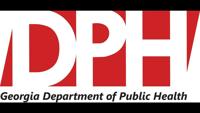Cognia, the company who decides if your child’s school is up to snuff, has a business model that’s tough to beat: A non-governmental organization supported by government funding. Put another way, Cognia lives off the taxpayers’ teat, but is accountable to no one. Not bad work if you can get it.
The nonprofit agency is in the business of accrediting schools in Georgia and beyond. In February of last year, Cognia granted the Cobb School District accreditation through the 2023-24 academic year, but complaints from parents and a letter signed by three school board members prompted Cognia to launch a new review, the outcome of which will remain unknown until after the August inspection and interrogation.
Cognia conducts its business with funding paid by the school districts. And, of course, that funding comes from taxes paid by property owners.
The stakes are high. Schools that fall from Cognia favor can suffer severe circumstances that impact students, teachers and the community at large. Loss of accreditation is a big stick capable of dealing devastating blows.
What many don’t realize though is that Cognia wields this absolute power in all but complete secrecy and answering to no one: not parents, not students, not the media, not the district itself.
Consider:
♦ CEO Mark Elgart, who reportedly makes close to $1 million a year, is evidently too busy to answer anyone’s questions and refuses to grant interviews.
♦ Cognia has deemed itself exempt from Open Records Law, an opinion refuted by media law attorneys and First Amendment experts, including legal counsel for the Georgia Press Association. It appears, however, Cognia has no intention of complying with written law unless a court order mandates they do so.
♦ Staff of Cognia are playing a shell game with documents requested by the MDJ, refusing to release them, but stating they are available from the school district. The only problem is that the district has yet to receive those documents.
These actions and others create dark corners where Cognia happily goes about its business with no interference or distraction from the very people who cover their paychecks.
Despite its preference to stay out of the spotlight, Cognia has been pushed front and center stage after announcing special reviews of two of the state’s largest school systems: Cobb and Gwinnett.
The unwanted attention is having the effect Cognia feared: Elected officials at every level have taken notice and are asking why this agency is allowed to make its own rules at taxpayer expense and do so without accountability.
It’s time to get it fixed and state Rep. Ginny Ehrhart, R-west Cobb, is on it.
“There is no question that a private, unelected organization like Cognia, which wields power over our public schools, should not operate behind a cloak of secrecy and should not allow its actions to be influenced by a political or social agenda,” Ehrhart said.
She plans to introduce legislation in the Statehouse that will fix “the problems with accreditation in Georgia” and said the process is “well underway” and has strong support.
“Everyone is telling me we need better options, including the county and state leaders I’ve spoken to,” said Ehrhart. “They took a bold step and hope we all sit quietly in the corner and don’t fuss. That’s not going to happen.”
Amen.
Over in the state Senate, Lindsey Tippins brings a unique perspective. He’s served as a member and chair of the Cobb school board before his time on the Education and Youth Committee in the senate. For a while now, he’s been uneasy with the lack of competition in the school accreditation industry. “It’s probably time for us to look at alternative accreditation agencies.”
He said while there are two options of accreditation agencies for public K-12 accreditation, only Cognia receives state funding.
“I’ll tell you this: there’s been talk for years about how we need to have alternative accreditation just to keep some honesty in the operation. Bottom line: I’m certainly going to look at it, because since it’s come up, it’s really raised everybody’s eyebrows.”
Interestingly, Cognia’s track record shows a keener concern on the performance of school boards than of students. Both Cobb and Gwinnett’s special reviews were prompted not by a failing academic environment (both systems are at the top of most rankings), but by complaints of board member behavior. The same can be said for previous reviews of Clayton and DeKalb schools. Board bickering was at the heart of the complaints, too.
Rep. Ehrhart and Sen. Tippins are barreling down the right track by launching a review of the reviewers.
At the end of the day, giving students the best place to learn and teachers the best place to teach is paramount; each decision should be based on those goals.
As the review process unfolds, the public deserves to be kept informed each step of the way. In the meantime, it’s time for Cognia and its operations to move from the shadows into the light … or face its own loss of accreditation.









(0) comments
Welcome to the discussion.
Log In
Keep it Clean. Please avoid obscene, vulgar, lewd, racist or sexually-oriented language.
PLEASE TURN OFF YOUR CAPS LOCK.
Don't Threaten. Threats of harming another person will not be tolerated.
Be Truthful. Don't knowingly lie about anyone or anything.
Be Nice. No racism, sexism or any sort of -ism that is degrading to another person.
Be Proactive. Use the 'Report' link on each comment to let us know of abusive posts.
Share with Us. We'd love to hear eyewitness accounts, the history behind an article.